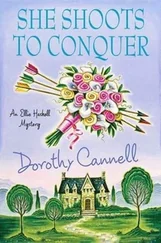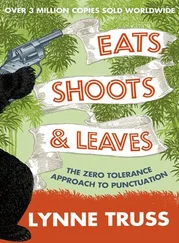Paul Morand - Tender Shoots
Здесь есть возможность читать онлайн «Paul Morand - Tender Shoots» весь текст электронной книги совершенно бесплатно (целиком полную версию без сокращений). В некоторых случаях можно слушать аудио, скачать через торрент в формате fb2 и присутствует краткое содержание. Год выпуска: 2011, Издательство: Pushkin Press, Жанр: Классическая проза, на английском языке. Описание произведения, (предисловие) а так же отзывы посетителей доступны на портале библиотеки ЛибКат.
- Название:Tender Shoots
- Автор:
- Издательство:Pushkin Press
- Жанр:
- Год:2011
- ISBN:нет данных
- Рейтинг книги:5 / 5. Голосов: 1
-
Избранное:Добавить в избранное
- Отзывы:
-
Ваша оценка:
- 100
- 1
- 2
- 3
- 4
- 5
Tender Shoots: краткое содержание, описание и аннотация
Предлагаем к чтению аннотацию, описание, краткое содержание или предисловие (зависит от того, что написал сам автор книги «Tender Shoots»). Если вы не нашли необходимую информацию о книге — напишите в комментариях, мы постараемся отыскать её.
Tender Shoots — читать онлайн бесплатно полную книгу (весь текст) целиком
Ниже представлен текст книги, разбитый по страницам. Система сохранения места последней прочитанной страницы, позволяет с удобством читать онлайн бесплатно книгу «Tender Shoots», без необходимости каждый раз заново искать на чём Вы остановились. Поставьте закладку, и сможете в любой момент перейти на страницу, на которой закончили чтение.
Интервал:
Закладка:
I would go and collect you in a great hurry — for these winter afternoons are short — to haggle over a piece of silk, yet another useless item, at some antique dealer’s in Ebury Street where we arrived late, while across the shop floor already wreathed in shadow a last glimmer of light shone on the gold of the lacquers, on the steel of the weapons and on the false teeth of the antique dealer who amused you.
Those were happy days.
When I immerse myself in their memory, two visions loom up.
It is nighttime; a clear night, one of very few in a rain-filled spring whose warm, blue humidity it continues to exhale. The windows are open; we are standing on the balcony, our elbows on the parapet. You are leaning over to breathe in the smell of the newly mown grass that wafts up from Kensington and mingles with the animal perfume of the dance; the green acid of your Longhi cloak hangs down over the bright orange colour of the hump-backed Japanese bridge; pressed against the railings by the masks is a woman with bare breasts who laughs as she tosses bread to the carp. While the Venetian Bauta mask sets your face in shadow, allowing only a curious chemical-red mouth to be seen, the night girds all this feasting in a rich, velvety shade, illuminated only by the upturned wheels of the big dipper, which tumbles vertically above us in a motionless fall.
Now it is daytime, in the countryside.
The tennis court seems to have been cut into the truncated hilltop, from where the county rolls down to the sea in gentle undulations, like sumptuous, unused parkland. A young man dressed in whites accompanies the ball which he tosses up, and which his opponent is expecting, in an elongated action, gathering his movements and his shadow around him. On a mound of blue grass some young women dressed in cherry, yellow, green, cherry jumpers gather around the tea, which is served on a rattan table. And the centre of all brightness, of this glistening jollity, the luminous axle of this circle of women who are surrounded in turn by the still vaster ring of countryside and sky, is the silver teapot which sings like the wasps on the tart — reflected in the lid is a convex image of the sky, the shadow of the trees; in its ribbed body, the attenuated shapes of the figures, and, in narrow streaks, the jumpers, cherry, yellow, green, cherry.
But how can one detach oneself for a single second from the present moment?
Here is a muddy moor where the sparse grass oozes like a sponge, over which the rotting green light of dusk falls; nothing restricts it except the sky and, to the left, the white wooden shacks from which the smell of rancid butter reaches my nostrils. In the puddles of water the image of an aluminium moon sends back its reflection into the washed sky, emptied of its rain. On the disintegrating roads, the faceted wheels of heavy artillery create vertebrate potholes filled with mauve water.
Then up the steep-sided road that connects the arsenal to the barracks, climb soldiers in battledress. In the mud, beneath the low sky, ammunition wagons sway, drawn by brewers’ horses, driven by soldiers with gentle, inscrutable faces. Behind them, the plain runs down towards the leaden river, covered as far as the eye can see with tents, wagons, naval guns without mounts, shaken apart with layers of violet earth, as regular as mole-hills, the trenches of the New Army.
Lastly, set against the sky is the city with its rearing chimneys, its squat gasometers, the lattice-girder railway bridges, the shiny rails, the signal discs, the masts of the sailing ships, the heavy smoke of the vessels under steam, and the arsenal dipping its pink steps in the river’s rising tide.
You did not believe in the war. You used to say:
“Anyway, it won’t last long.”
“It would be too awful …”
Or:
“It’s impossible, I’ve been to Munich.”
But the Germans made war on France in order to be able to come to the Café de Paris in uniform. They made war on England because they were convinced that English tailors made badly cut clothes for them deliberately.
When I telephoned to tell you that Germany had declared war on Russia, you replied:
“I was in the garden, I was cutting some roses …”
You were upset thinking about all your relatives, your friends of France, but you could not rid yourself of that sense of security of those who live in a place surrounded by water.
This country awoke slowly to the war. The evidence came from outside, on seeing the German Jews from Commercial Road closing their shutters, those from the West End hiding away their pictures, the slump of consols in London, the collapse of wool in Sydney, the Americans fleeing in their nickel-plated motorcars, and gold, more fearful still; on hearing that arthritic diplomats were leaving the spas, that kings were returning to their capitals, that other countries were closing their frontiers like bolted doors. Then it was the departure of the French hairdressers and chefs, going down to the stations carrying a flag.
Warships could be seen sailing from Portsmouth as they did every year, for the regattas, but the stoppers had been removed from their guns and the German yachts did not come. The sea reacted first, then the coasts where the coastguard reservists climbed up to the semaphores with their kit folded inside a green canvas bag. And the fever eventually spread from the edges to the centre.
All this took place imperceptibly. England did not experience that sleepless August night when millions of men kissed their wives with dry lips and burned their letters. She paid no attention to the commotion, did not close her portholes, did not slip her moorings.
Just one policeman was put on duty outside the German embassy.
And when they realised, some barracks were built.
But could it be realised other than slowly, in this unscarred country, where children have never discovered cannonballs from previous wars embedded in the walls of houses?
Would you hope to see at a given signal the streets empty themselves of their cars, of their passers-by? The lawyers in gowns, the ushers in amaranthine robes, the judges in wigs, the bookmakers in putty-coloured overcoats with mother-of-pearl buttons, setting out on foot to the railway stations, making their way to the inland garrisons, and the peers keeping watch on the bridges over which no packed trains were yet passing, towards our frontier?
I hear you coming, Clarissa. You walk on your heels, with big, decisive footsteps; your dress makes no silken rustling noise; you are whistling a ragtime tune.
You are tall, broad-shouldered; a lovely figure and red hair. You are not vain about your beauty, but you like to draw attention to your hair.
You say:
“I adore redheads. As soon as a redhead appears anywhere, I notice her.”
You loathe the indirect compliments that dark-haired women aspire to, affirming hypocritically that only blondes know how to please; you say:
“I’m a redhead. Like all redheads, I’m bad-tempered.”
At first, you are not pleasant, especially when someone meets you socially for the first time, without your house, without your friends, without all that explains you, with a hat and gloves. You glance around you disdainfully, you purse your lips, you hold your head high and you seem to be saying to people:
“I’m taller than you.”
You are so badly dressed! Yet in the very best taste. Your shoes are pointed at the toe; one expects to see flat heels; your dresses are simple, short, with pockets; you wear them for a very long time and from morning till evening. One imagines that your toilette is complete once you get out of the bath, when you are clean. Rising at seven o’clock, you come down to breakfast at eight, fully dressed. You have stray wisps of hair and you tuck them under your hat with your finger, in the motorcar.
Читать дальшеИнтервал:
Закладка:
Похожие книги на «Tender Shoots»
Представляем Вашему вниманию похожие книги на «Tender Shoots» списком для выбора. Мы отобрали схожую по названию и смыслу литературу в надежде предоставить читателям больше вариантов отыскать новые, интересные, ещё непрочитанные произведения.
Обсуждение, отзывы о книге «Tender Shoots» и просто собственные мнения читателей. Оставьте ваши комментарии, напишите, что Вы думаете о произведении, его смысле или главных героях. Укажите что конкретно понравилось, а что нет, и почему Вы так считаете.












